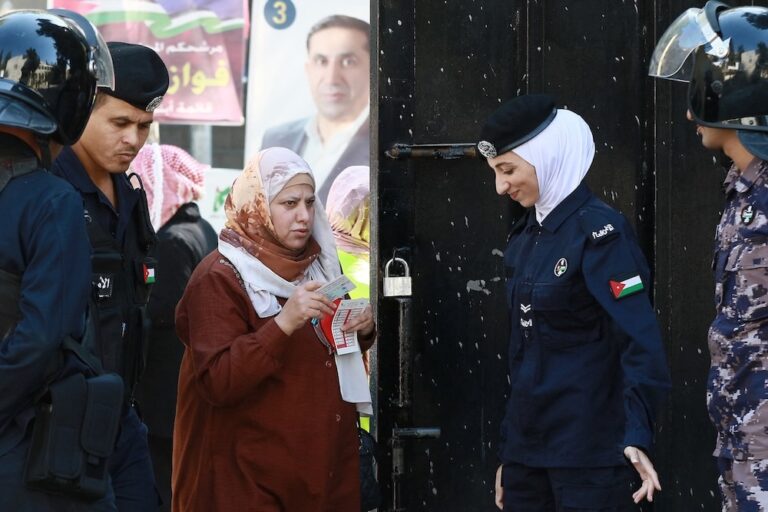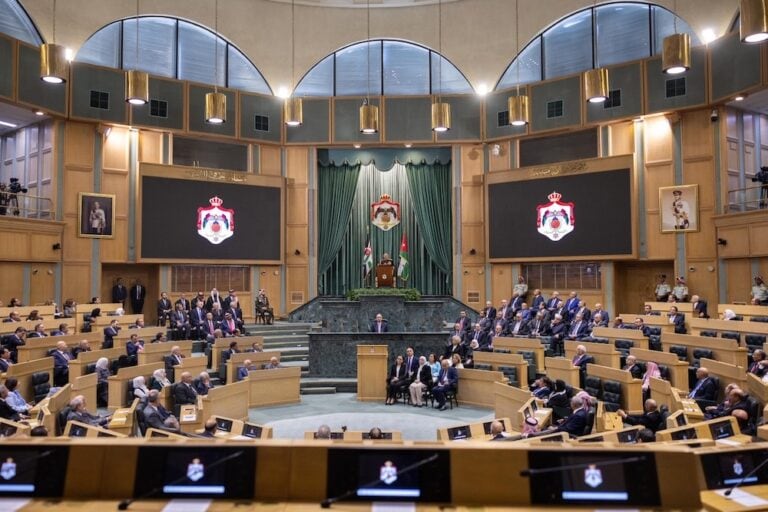The military prosecutor has charged 18-year old activist 'Uday Abu 'Isa with "undermining his majesty’s dignity" for burning the king’s image on 11 January.
(Human Rights Watch/IFEX) – Beirut, January 19, 2012 – Jordan’s military prosecutor should drop charges of “undermining his majesty’s dignity” against a youth who burned the king’s image on January 11, 2012, Human Rights Watch said today. Although prosecutions for general criminal damage of other people’s property may be permissible, criminalizing insults against a head of state is not compatible with international human rights standards protecting the right to freedom of expression, Human Rights Watch said.
‘Uday Abu ‘Isa, an 18-year-old activist from Madaba, 40 kilometers south of Amman, and a member of the Youth Movement for Reform, ignited a large banner showing King Abdullah II that was hanging on the municipal building in Madaba, witnesses told Human Rights Watch. Such images adorn nearly every official building and office in Jordan. Security forces immediately arrested Abu ‘Isa, who is already on trial on similar charges for shouting slogans in December. The prosecutor also charged him with burning property.
“Burning a royal’s image as a political statement should not be criminally prosecuted,” said Christoph Wilcke, senior Middle East researcher at Human Rights Watch. “To prosecute this act would send a chilling message that criticizing the king is off limits.”
Abu ‘Isa’s father and fellow activists said on January 12 that they did not know his whereabouts, but media reports later that day said the military prosecutor at the State Security Court had charged Abu ‘Isa with “undermining his majesty’s dignity.” The charge is among several acts of lèse majesté, or insulting the king, for which article 195 of Jordan’s penal code imposes sentences of between one and three years in prison.
The prosecutor also charged Abu ‘Isa with setting property on fire, a person who spoke with Abu ‘Isa told Human Rights Watch. The crime is punishable, under penal code articles 368 to 375, with hard labor.
While destroying public or other people’s property may be legitimately prosecuted, officials should not treat the act of burning the banner as tantamount to criminally offensive speech merely because it had the king’s image printed on it, Human Rights Watch said.
In early December 2011, the State Security Court, a special court dominated by judges and prosecutors appointed by Jordan’s armed forces, whose head is the king, detained and charged Abu ‘Isa for lèse majesté after he shouted slogans deemed insulting to the king during a protest in Madaba in solidarity with a fellow youth activist, Abdullah Mahadin. Mahadin had been arrested following an earlier protest in Amman. The trials against Mahadin, in civilian court, and against Abu ‘Issa for the December charges, at the State Security Court, are currently in progress.
Human Rights Watch has documented several cases of prosecutions for lèse majesté against people who expressed opinions deemed insulting to the king at a barber’s shop, during parliamentary campaigning, to a colleague, and for poetry published on Facebook, and other internet sites.
(. . .)


